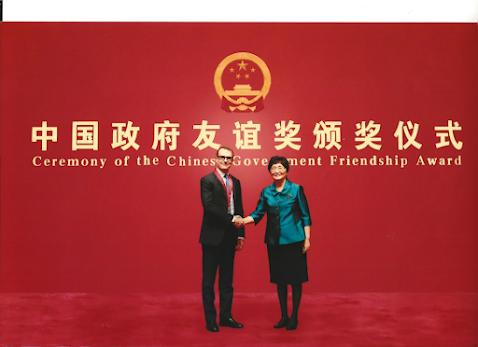Proposal to include climate adaptation in the Measures for the Protection of State-owned Grain and Oil Storage and Logistics Facilities | CBCGDF Climate Change Group - Policy Advisory
In September 2024, the "Measures for the Protection of State-owned Grain and Oil Storage and Logistics Facilities (Draft for Public Comments)" was open for public consultation. The Climate Change Working Group of China Biodiversity Conservation and Green Development Foundation (CBCGDF) responded positively to the call and, after careful study, suggested adding content on climate adaptation.
Climate adaptation refers to the reduction of climate risks and the protection of sustainable development of society, economy and ecosystems by adjusting the behavior, structure and management of natural or human systems to cope with current or expected climate change and the impacts it brings. This includes the adoption of technological, policy and infrastructure improvements to enhance the ability to respond to climate change phenomena such as extreme weather events, sea level rise, temperature fluctuations, etc., in order to reduce the impacts of disasters and increase the resilience and adaptability of systems.
As global climate change intensifies and the frequency and intensity of extreme weather events increase, the risks to grain and oil storage facilities also rise. As infrastructure for national food security, the design and management of grain and oil storage and logistics facilities must take into account the potential impacts of climate change and adapt to them. Therefore, it's particularly important to consider including "climate adaptation" in the Draft, mainly based on the following considerations:
(i) Climate change directly affects the temperature and humidity of the grain and oil storage environment, which will increase the risk of mold and pests and jeopardize the safety of grain and oil storage.
(ii) The resilience of grain and oil storage facilities must also be strengthened.
(iii) To better cope with the threat of climate change, we propose to introduce a climate risk assessment mechanism into the management of storage facilities.
(iv) Climate resilience of grain and oil storage facilities can also be integrated with the concept of green development.
(v) Climate varies significantly from region to region, and differentiated adaptation strategies should also be developed based on regional characteristics when implementing climate adaptation measures nationwide.
(vi) It is recommended that a long-term climate change monitoring mechanism be established to dynamically track the risks of storage facilities through meteorological data and prediction models.
Climate change has become a key factor affecting the safety of grain and oil storage facilities and the ability to guarantee grain reserves. Incorporating climate resilience can effectively enhance the resilience of grain and oil storage facilities and ensure that the security of national grain reserves can be sustained under future climatic conditions by strengthening the climate-adaptive design of facilities, the construction of disaster resilience, climate risk assessment and the application of green energy. This adjustment is not only in line with the strategic objectives of national food security, double-carbon, disaster prevention and mitigation, but also with the global trend of addressing climate change.
(The article is a record of daily work and is for reference only.)
Edited by: Samantha
Contact: v10@cbcgdf.org; +8617319454776
Contribution
Do you know? We rely on crowd-funding and donations. You have the opportunity to help an international movement to advance biodiversity conservation. Donate TODAY to power up the movement to make it a better world for all life.
Donation(501C3)Paypal: intl@wbag.org
https://www.paypal.com/donate/?hosted_button_id=2EYYJJZ8CGPLE






Comments
Post a Comment